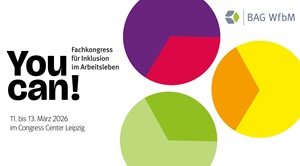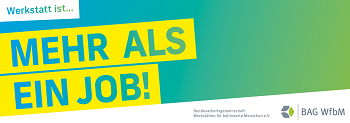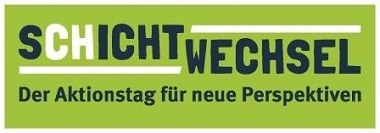The “Ecological Project for Integrated Environmental Technology”, or “Ökoprofit” in short, was developed in Austria at the beginning of the 1990s. Ökoprofit is a cooperation between municipalities and the local economy which aims to reduce operating costs while trying to preserve natural resources (including water and energy).
Ecology is paying off. That also holds true for workshops for adapted work. The example of the German workshop for adapted work in Oberursel (near Frankfurt) underlines that fact. In 2008, the workshop took part in the project “Ökoprofit Hochtaunus” of the local district for the first time. Over the course of one year, the Oberurseler workshop developed measures to preserve the environment and to save costs.
From now on, the workshop reduces its consumption by 191.666 kilowatt hours of natural gas (11.500 euros), 24.000 kilowatt hours of electricity (1.700 euros) and 7.037 litres of fuel (9.750 euros) per year. In total, carbon dixoide emissions in the region were redcuced by 82.599 kilos. This corresponds to a cost reduction of 22.950 euros. As a consequence, the Oberurseler workshop has been certified as an Ökoprofit company. According to Karlheinz Roth, the workshop manager, the application was published in an internal memo and discussed in several meetings. The staff responded very positively, and participants in the project quickly gathered. The workshop council was involved as well. Furthermore, special training sessions were offered to change individual behaviour.
Karlheinz Roth emphasises the significant scope of the resulting savings. In order to carry out the project, a project team consisting of five project participants was launched. This team met every two weeks for about two hours. Moreover, project participants also attended various advanced training sessions. Karlheinz Roth is convinced that participation in Ökoprofit was worth all the effort.
The roof of the workshops’ new qualification centre was insulated, as were the windows. As a consequence, energy savings of about 20 percent could be realised. This shows, how a simple change in behaviour can sometimes be sufficient to align environment and profit interests.
Unlike other management approaches, which are only targeted at the individual level, Ökoprofit aims to create a local network for environmental protection. After implementing the basic programme for a year, many companies join a club which regularly offers advanced training meetings on new developments in environmental law and in relevant organisational and technical innovation.
Ökoprofit is internationally applied as a model of cooperation between the municipality and local companies by cities and regions in Italy (Modena), Slovenia (Ljubljana and Maribor), Hungary (Pecs), India (Gurgaon), Colombia (Bucaramanga, Medellin), Korea (Incheon, Busan) and China (Panzihua).
Who we are
Bundesarbeitsgemeinschaft Werkstätten für behinderte Menschen e. V. (BAG WfbM) is the political representative of sheltered workshops in Germany. We represent 93 % of all German workshops. All public welfare organisations and religious denominations work jointly in our organisation.
Our task is to give expert advice on questions related to employment, vocational training, financing and legal issues. Additionally, we are actively involved in the legislation process. BAG WfbM promotes for the participation of persons with disabilities in working life.
Our task is to give expert advice on questions related to employment, vocational training, financing and legal issues. Additionally, we are actively involved in the legislation process. BAG WfbM promotes for the participation of persons with disabilities in working life.
































